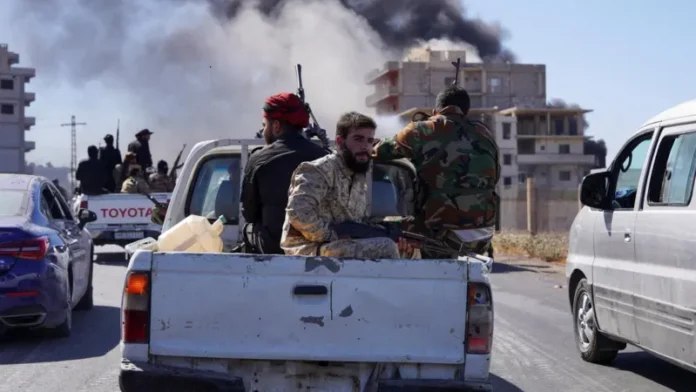Tensions in southern Syria escalated dramatically this week as Israel launched airstrikes on Syrian government forces near the predominantly Druze city of Suweida, amid a wave of sectarian violence that has left at least 200 people dead.
The move comes as Damascus deployed troops to Suweida for the first time since the ouster of President Bashar al-Assad in December.
The UK-based Syrian Observatory for Human Rights (SOHR) reported on Tuesday that fighting between Druze militias and Bedouin tribes, which erupted on Sunday, has rapidly intensified, prompting mass displacement and fears of wider regional instability.
Israeli Prime Minister Benjamin Netanyahu said he ordered the strikes to prevent Syrian government troops and weaponry from being used against the Druze population, a religious minority with deep ties to Israel and the Israeli-occupied Golan Heights. “We are committed to protecting the Druze people,” Netanyahu stated in a televised address.
Syria’s foreign ministry condemned Israel’s involvement, saying that both civilians and members of the armed forces were killed in the strikes. “Israel bears full responsibility for the aggression and its consequences,” it said.
According to US-based news outlet Axios, the Trump administration has asked Israel to halt further military action. Israel reportedly agreed to cease its strikes as of Tuesday evening.
Earlier that day, Syria’s defence minister announced a ceasefire agreement in Suweida, following negotiations with local dignitaries. However, the ceasefire appears fragile. One Druze spiritual leader urged continued resistance against the central government’s forces, which have been accused of looting and violence.
SOHR reported that government troops executed at least 19 Druze civilians after their entry into Suweida, including 12 killed at a family guesthouse. Witnesses also reported widespread vandalism and arson of civilian homes. Video footage verified by Reuters showed men in military uniform burning and looting local shops.
Syria’s authorities have not publicly responded to the allegations of atrocities.
A resident speaking to BBC Arabic described the current situation in Suweida as “catastrophic,” citing indiscriminate shooting by troops and a mass exodus of civilians seeking safety in the countryside despite a curfew.
The recent bloodshed marks a major turning point for Suweida, a region that had largely avoided government presence since the fall of Assad and remained under the control of Druze militias wary of aligning with interim President Ahmed al-Sharaa.
As of now, the prospect of long-term stability in Suweida remains uncertain, with regional actors, including Israel and the United States, closely monitoring developments.
This article was created using automation technology and was thoroughly edited and fact-checked by one of our editorial staff members

